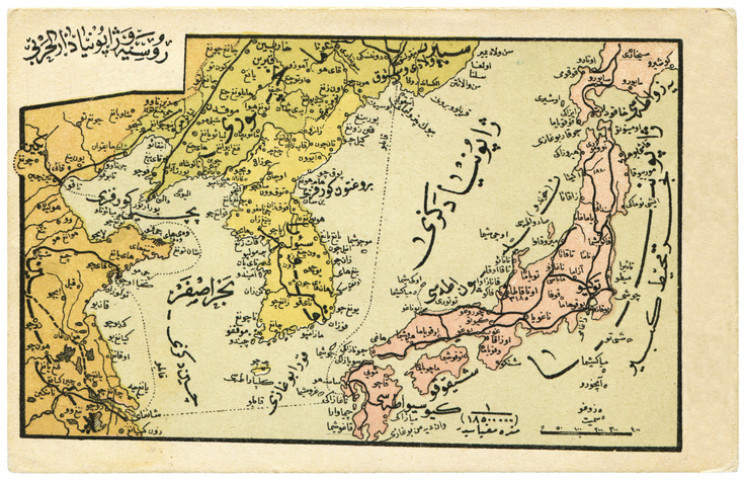What Is It Like Knowing You Are Going to Die
Languages define u.s., our cultures, and ultimately, they define how the globe around u.s.a.. Almost of us probably consider the language nosotros speak, a part of the states — just as much as, say, our hair color, or our personality.
At present, step back for a second and imagine you lot were the last person on globe that spoke your language.
How would you go most making sure that it stayed live? And if you couldn't, how would you feel about centuries worth of civilization just dying off with yous.
RELATED: 31 LOST CITIES YOU MIGHT Non KNOW
That may sound unimaginable to those of us who speak English or Castilian, or other widely spoken languages, simply languages accept come and gone throughout all of homo history. In fact, it's estimated that currently more than one-half of the world'due south 6,900 languages are at chance of dying by the end of the 21st century.
The first question to ask is why.
Why Do Languages Die?
Occasionally, languages will die apace when there is simply a small community of speakers that are wiped out by war or natural disaster. These tend to be indigenous languages that are highly isolated to a geographic region.
In Republic of el salvador, speakers of the Lenca and Cacapera language abandoned speaking them when Salvadoran troops killed thousands of ethnic people. However, while some languages do die suddenly, most die out slowly over the class of several generations.
It all starts equally cultures starting time meshing and new generations start becoming bilingual, so they take they are able to speak with others. Eventually, their children or their children's children just end speaking the uncommon ancient language and start speaking the more common i.
I great example of this is the disappearance of the Coptic language in seventh century Arab republic of egypt. Arabic slowly started becoming more prominent, and since it was the language of commerce, in that location became little need or desire to speak another language.

At least in the modern era, as languages dice, about are documented and preserved by historians in order to document old cultures, traditions, and lives of the ancestors.
In some cases, preservationists are also able to revive old languages; the nearly prominent modern case is Hebrew. By the 2nd century, it had died out as a common language, persisting only in religion and education.
Through the help of historians, at present in the 20th and 21st centuries, it has get the get-go language of millions of people in the state of State of israel.

Then then, if we empathize why languages do die, what is the actual process of a linguistic communication dying? After all, if we decipher how this happens, mayhap we tin can help figure out early on how to preserve the dying languages, especially earlier they are forgotten and lost forever.
The Process of Languages Dying
When a language starts to die, nosotros unremarkably see these 4 things start to happen:
1. We lose a unique culture and perception of the world
Each language represents its own culture and the speaker's unique mode of looking at the world. Even inside this perception, there's the fact that every linguistic communication has a unique mode of representing our world through words besides.
Each and every linguistic communication can be viewed every bit a sort of key that can tap into a civilization's history and background with ease. Understanding how a linguistic communication played a unique role in history and its underlying importance is ane of the offset things we start to lose when a language starts dying. Once a language'southward inherent importance is gone, other aspects are let get too.
2. We lose the memory of different histories
Following up on the loss of unlike perceptions of history, equally languages die, we could also lose the understanding of the world around us every bit well. In many cases, we lose the minute details of stories and pasts — all due to how languages nowadays data.
For example, in the Greenlandic language, there are multiple words that describe the uncomplicated action of wind, all describing unlike things. When that linguistic communication dies, and that story is transcribed into new languages, those details are lost, and the story just becomes about 'elementary' current of air.
While that may not sound that desperate, imagine that over an entire book of literature, short stories, and entire histories. Every bit the original language is lost, those histories cease upward changing or being lost with it.

3. We lose local resources
For most of human history, languages came and went, but the full number stayed nigh the aforementioned. When local languages died, the speakers learned a new linguistic communication that still wasn't dominant elsewhere.
In the 21st century, we now simply take virtually 100 languages that are culturally dominant around the earth with the residue being spoken by few.
The locals that do speak these languages, like tribes or village inhabitants, they often possess knowledge of the earth around them that the rest of the world doesn't understand. This is knowledge of plants, where freshwater is, and perhaps ideas of how the world piece of work. These natural and cultural resources, if not preserved or tediously translated into a new language, tin be lost to time as languages dice. In many aspects, it's this loss of resource that impacts the world the most, as a language dies.
4. People lose their language
While we've discussed losses of ideas and resources, perhaps the most drastic thing that happens when a language dies is what occurs to the original speakers. As languages die and fall out of practice, many observe themselves unable to speak their commencement language anymore. In many cases, they can lose unique memories and lose impact with memories of lost loved ones.
In many cases, at that place's no resources to learn back the lost language either. Imagine if you moved to a Spanish speaking land, spoke that language all the time, and lost English language. Now imagine that no one else knew English or could help you recollect it. That loss is visceral, as languages frequently help define who we are.

When a language dies, we lose cultures, unabridged civilizations, merely also, we lose people. We lose perspectives, ideas, opinions, most importantly, we lose a unique way of being human.
steigerwaldtheassion.blogspot.com
Source: https://interestingengineering.com/what-happens-when-a-language-dies-and-is-forgotten
0 Response to "What Is It Like Knowing You Are Going to Die"
ارسال یک نظر